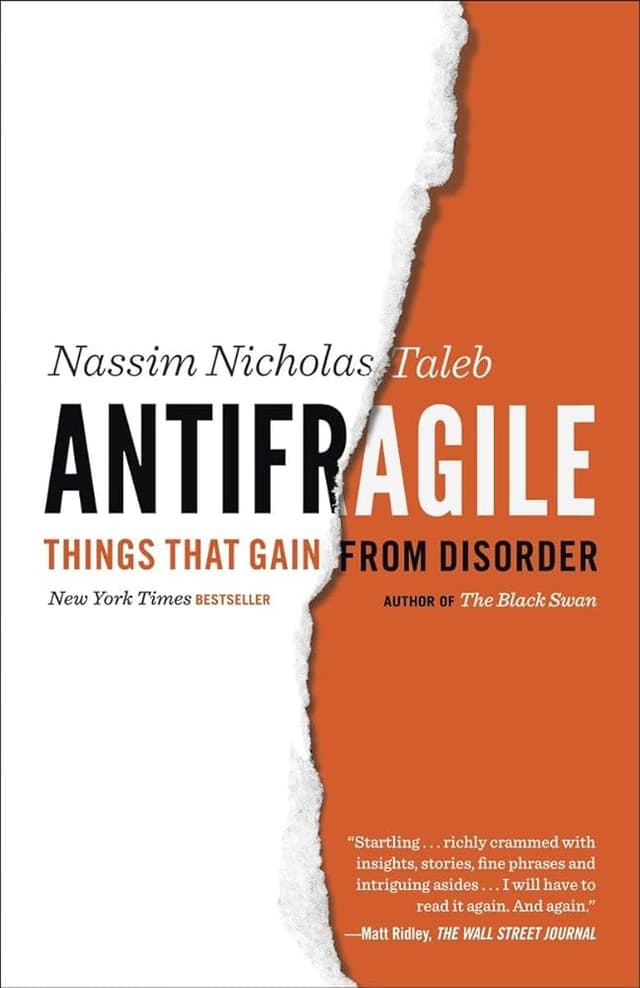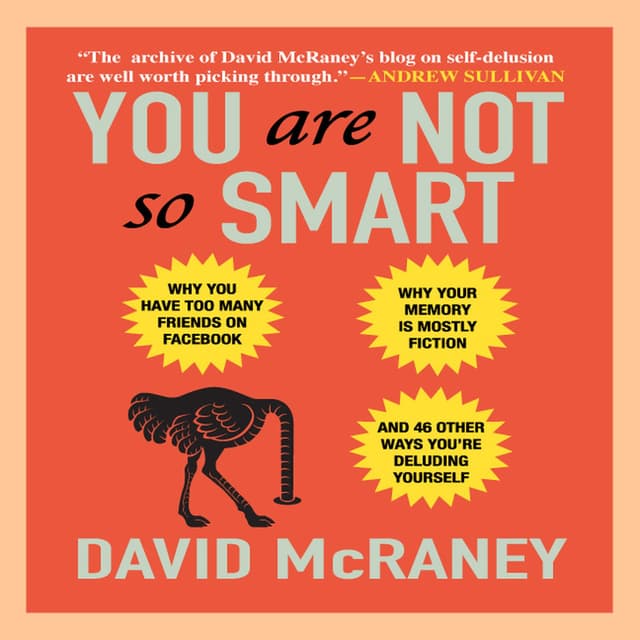Antifragile: Things That Gain from Disorder vs. YOU are NOT so SMART
Antifragile: Things That Gain from Disorder
"Antifragile: Things That Gain from Disorder" by Nassim Nicholas Taleb is a groundbreaking exploration of systems and entities that thrive and grow stronger in the face of stress, volatility, and chaos. Taleb introduces the concept of "antifragility," which goes beyond resilience or robustness. Through a mix of philosophy, practical wisdom, and real-world examples, Taleb illustrates how embracing uncertainty and leveraging disorder can lead to success and innovation. This book is essential for anyone interested in risk management, personal development, and understanding how to benefit from uncertainty and change.
YOU are NOT so SMART
Finally realize why I'm such dumb *ss

Reviews
Reviewed on 2/29/2024
I remember reading Antifragile when it first came out and it made a huge impression. It changed the way I think in plenty of subtle ways. I've been rereading Nassim Nicholas Taleb recently, starting with Black Swan. I really want to reread Antifragile this year too.
Reviews
| Item | Votes | Upvote |
|---|---|---|
| Innovative and original concepts | 1 | |
| Practical applications across various fields | 1 | |
| Engaging and thought-provoking narrative | 1 |
| Item | Votes | Upvote |
|---|---|---|
| Taleb's writing style can be polarizing | 1 |
| Item | Votes | Upvote |
|---|---|---|
| No pros yet, would you like to add one? | ||
| Item | Votes | Upvote |
|---|---|---|
| No cons yet, would you like to add one? | ||
Frequently Asked Questions
'Antifragile' by Nassim Nicholas Taleb is ranked higher than 'YOU are NOT so SMART' by David McRaney on the 'Best Books Ever' list. 'Antifragile' has had a significant influence on many readers, including changing the way they think in various subtle ways. 'YOU are NOT so SMART' is recognized for its insights into human cognitive biases and self-perception. The preference between the two depends on whether you are more interested in understanding how to thrive in chaos ('Antifragile') or uncovering the reasons behind human irrationality ('YOU are NOT so SMART').
'Antifragile: Things That Gain from Disorder' by Nassim Nicholas Taleb is a groundbreaking exploration of systems and entities that thrive and grow stronger in the face of stress, volatility, and chaos. Taleb introduces the concept of 'antifragility,' which goes beyond resilience or robustness. Through a mix of philosophy, practical wisdom, and real-world examples, Taleb illustrates how embracing uncertainty and leveraging disorder can lead to success and innovation. This book is essential for anyone interested in risk management, personal development, and understanding how to benefit from uncertainty and change.
Pros of 'Antifragile: Things That Gain from Disorder' include its innovative and original concepts, practical applications across various fields, and an engaging and thought-provoking narrative. However, a con noted by some readers is that Taleb's writing style can be polarizing.
Nassim Nicholas Taleb is a renowned scholar, statistician, and former trader known for his work on probability, uncertainty, and risk management. He is the author of several influential books, including 'The Black Swan,' 'Fooled by Randomness,' and 'Antifragile.' Taleb's work often focuses on the limits of knowledge and the impact of rare, unpredictable events.
'YOU are NOT so SMART' by David McRaney is a book that delves into the common misconceptions and cognitive biases that affect our everyday thinking. It explores why people often overestimate their intelligence and make irrational decisions.
David McRaney is an American journalist, author, and lecturer known for his work on the subject of cognitive psychology. He is best known for his book 'YOU are NOT so SMART' and its subsequent works, which explore the psychology behind human irrationality.
As of now, there are no user-generated pros and cons for 'YOU are NOT so SMART'. Generally, readers appreciate its insightful and humorous approach to cognitive psychology, while some may find its content repetitious or overly simplified.




















